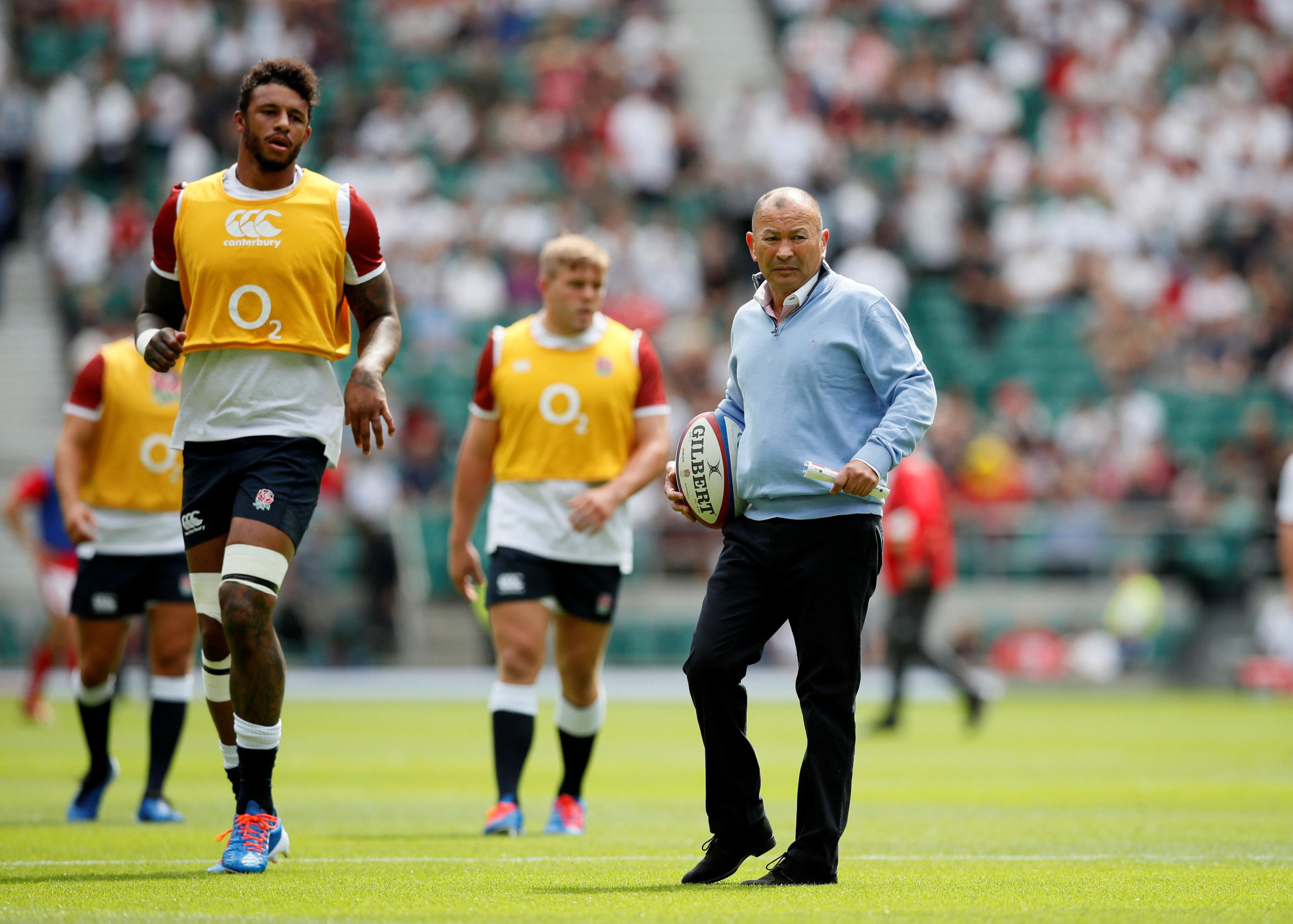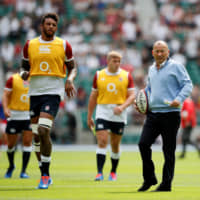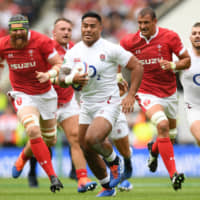The England team and I will leave for Japan to start our Rugby World Cup campaign on Sept. 8. We'll arrive just short of two weeks before our first game, against Tonga.
First, we're going down to Miyazaki, and we'll stay there for about eight days before our opening game. It's about sharpening the sword — making sure we're getting things right tactically and the last little bit of team selection. All those little bits and pieces.
We're going to do a couple of rugby clinics with the local community in Miyazaki, but we'll mostly keep to ourselves. That last period before the start of the tournament is more about us.
World Cups are big sporting events. The event is quite intense and the players don't have much time to interact with the public. That's the reality of it.
The way it is now, because the media is so intrusive, you've got to be careful of your training sessions when you open them up to the public. We go to training sessions and people are taking photographs of pieces of paper that you're holding in your hand. All that has changed the landscape of how you interact with the public. The media has made teams more private.
We've started lessons for the players in Japanese cultural understanding. All we can do is give them a taste of it, and then it will be up to each and every individual player as to how much they engage with Japanese culture and the Japanese community.
Every player is different. Some players are curious and want to learn more, and they will venture out and do different things. Other players will basically never leave the hotel.
The players are able to do what they want in their own time as long as it's not detrimental to their performance or the team's performance. We don't have a curfew. Like any team or any group of people, you've got some who live life on the edge. You are worried about people like that, but one thing I've learned is that having a lot of rules and regulations with teams doesn't work. You've got to treat them as adults and trust them.
I think, by and large, most players will do the right thing. We might have one or two who muck up — and England certainly doesn't have a good record in behavior in previous tournaments — but I think this is a different group of players. They understand their responsibility to the nation and to the rugby union, and I'm sure they'll fulfill those obligations properly.
I think the range of different cultural experiences at a Rugby World Cup is something that the fans can enjoy more than the players. For the fans, it's fantastic. If you're curious about Japanese culture, you can get out of the city, go to the countryside, experience onsen (hot spring), experience all the local produce. But for the players, it's a little more difficult.
I think the diversity of Japan makes it a fantastic opportunity for the fans. You've got Tokyo, which is one of the best cities in the world. It's got the most technological advanced areas and also the old areas, where you can go to sushi restaurants and izakaya (pub) and have great fun. If you're in Sapporo, you can look at the mountain areas. All those things are available.
Speaking to a lot of people coming from the U.K., they see it as an opportunity to visit Japan. It's a place that a lot of people always wanted to go to but never went to for various reasons. Now, if you've got a rugby interest, it's a strong opportunity to see a great sporting event and also experience Japan.
One of the things that stands out to me most about rugby culture is that everyone loves the game rather than loves their teams. That's the big difference between rugby and soccer. Rugby supporters love the game so they go there wanting their team to win, but there's this camaraderie between spectators. You don't get the intense rivalry that you get in soccer.
The Japanese public will experience the community spirit that makes up rugby and they'll learn from that. They'll see people of different nationalities mixing because they love rugby. I think that's one of the key values of our game. It has this togetherness.
I'm confident that England can win the World Cup. We've got enough talent on the team, and then you have to have the hard work and the togetherness to make sure you're right for the tournament.
I think this tournament is probably the most evenly matched that we've seen for a long time. The margins between the teams are getting smaller, and this time you have eight or nine teams capable of winning it. We feel like we're one of those teams in there competing, and if we keep learning and keep improving, we're going to be in a good position to lift the trophy
Eddie Jones is the head coach of England's national rugby team. He coached Japan from 2012 to 2015.




















With your current subscription plan you can comment on stories. However, before writing your first comment, please create a display name in the Profile section of your subscriber account page.